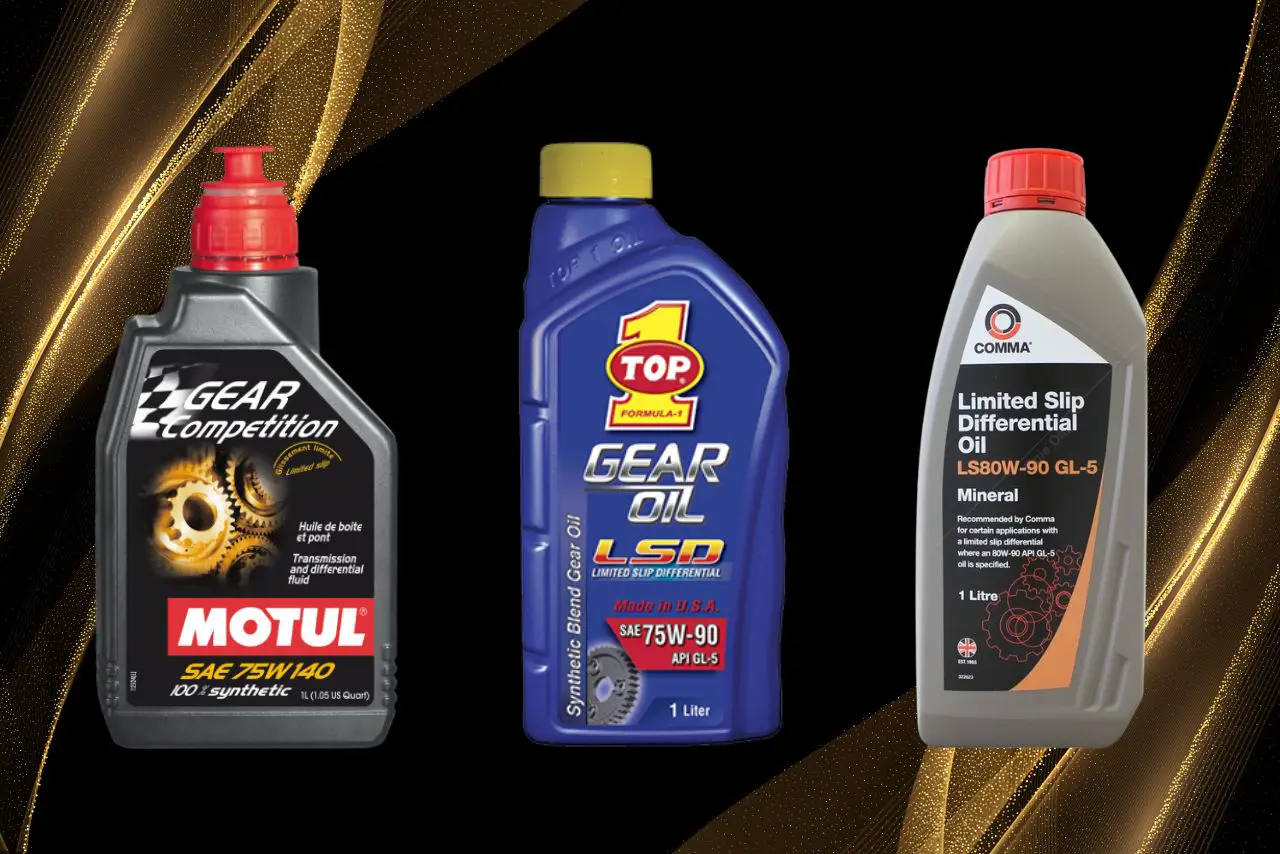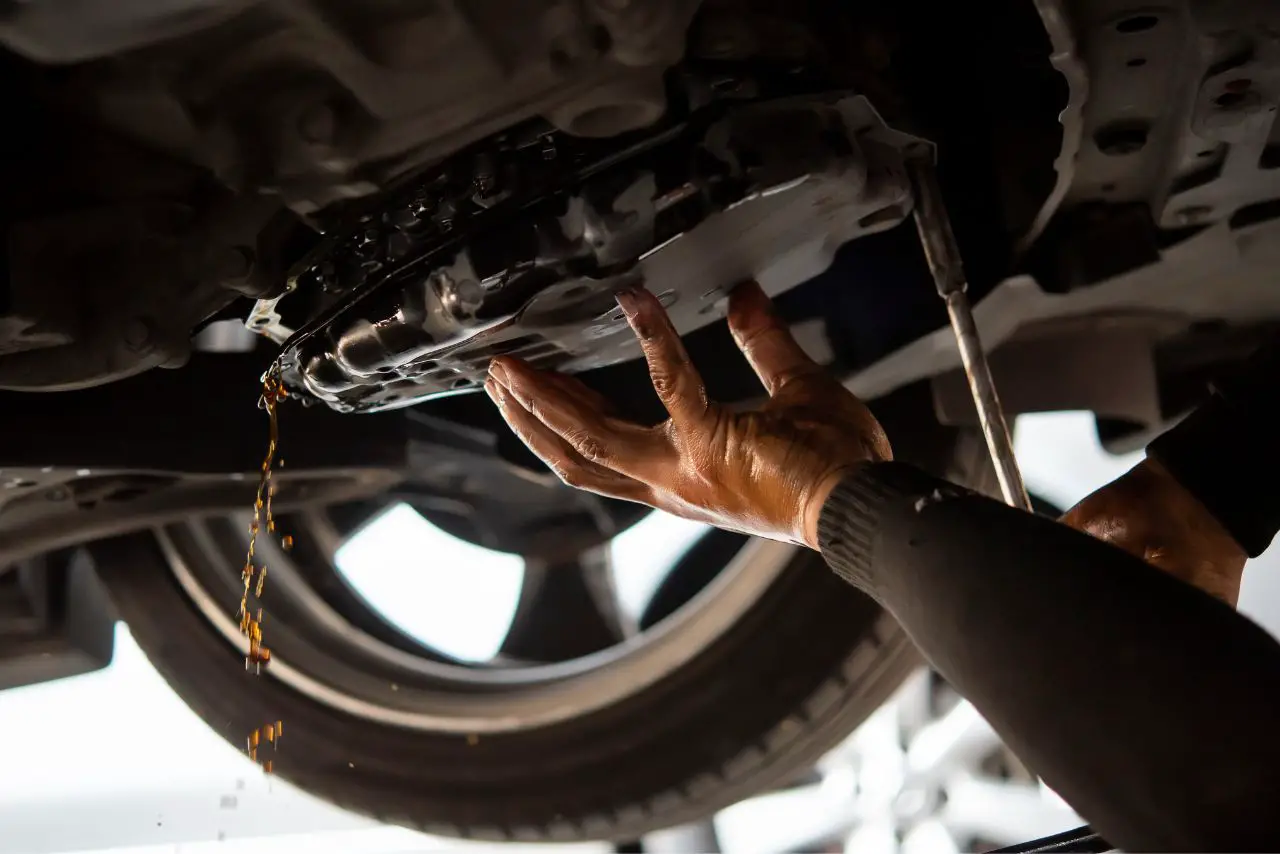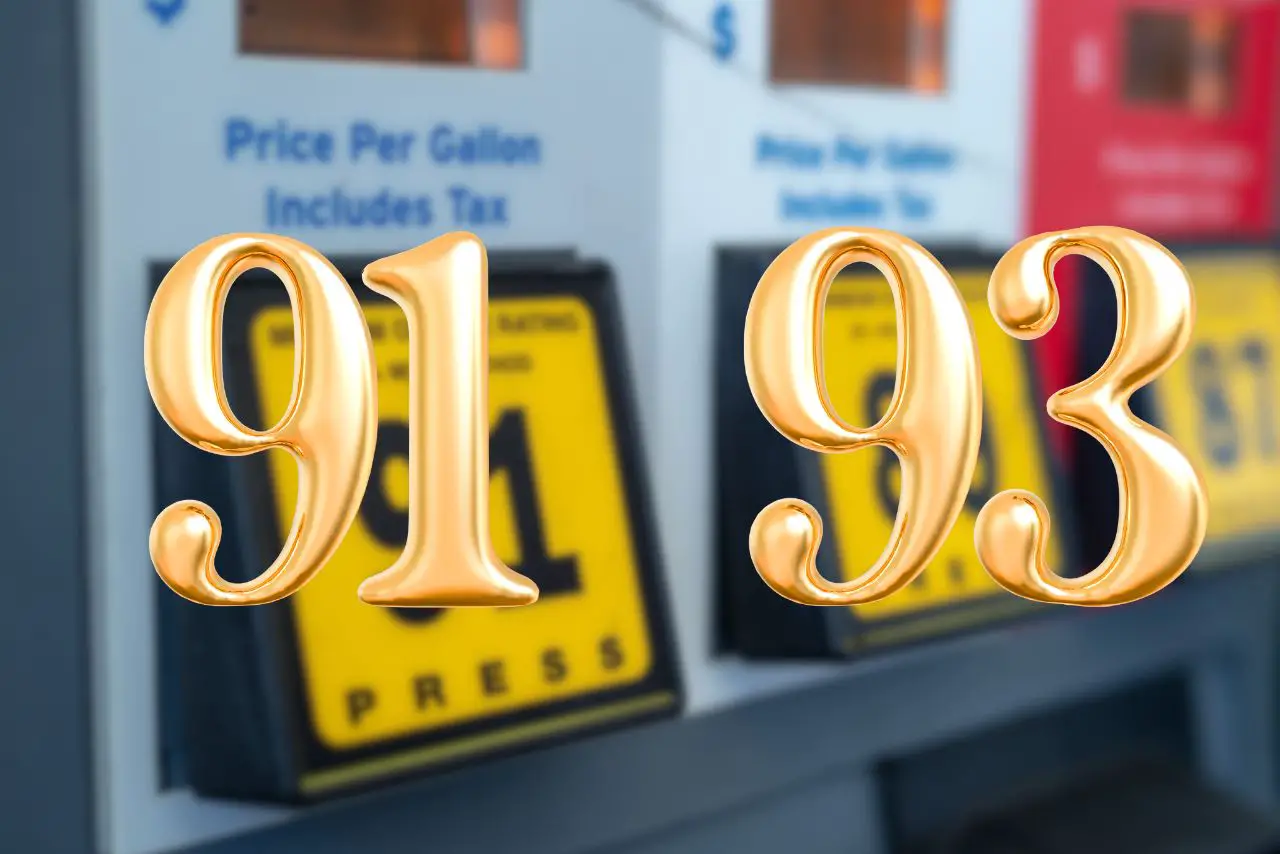You’re probably well aware of the importance of regular oil changes for your car’s health, but have you ever stopped to consider the size of your oil filter?
While it may seem like a minor detail, using the incorrect size filter can spell disaster for your engine.
With so many options on the market and varying filtration capabilities, it’s important to understand how and why oil filter size matters.
In this article, we’ll cover everything you need to know about choosing the right oil filter size for your vehicle, from when to change it, factors to consider in making a selection, and technologies available.
Does Oil Filter Size Matter? The answer is that the size of the oil filter doesn’t really matter.
As long as you are using a filter that is compatible with your vehicle, the size should not affect the filter’s ability to effectively filter out contaminants and protect your engine.
Why Oil Filter Size Matters?
Well, for starters, the size of your oil filter determines its filtration capacity. A larger filter will have more surface area and be able to capture a greater number of particles than a smaller one.
This can result in better filtration efficiency and longer engine life.
Another reason why oil filter size matters is that using the wrong size filter can damage your engine.
If the filter is too small, it may not be able to capture all of the contaminants in your oil, which can lead to accelerated wear on engine parts.
On the other hand, if the filter is too large, it may not fit properly or have enough pressure to function correctly with your engine’s valve train.
How Does an Oil Filter Work?
Oil filters play a critical role in protecting your engine by capturing contaminants and preventing them from entering the motor.
They work by using a filter element, typically made of synthetic media or cellulose, to capture particles as small as 20 microns.
The oil flows through the element and into the engine, while contaminants are trapped and prevented from causing damage.
Premium oil filters often have better filtration efficiency, capacity, and quality than standard ones due to more advanced technology being used in their manufacture.
What Happens if You Install the Wrong Size Oil Filter?
Using the wrong size oil filter can have serious consequences for your engine.
If the filter is too small, it may not be able to capture all of the contaminants in your motor oil, which can lead to increased wear on engine parts and ultimately shorten the life of your engine.
This is because a smaller filter will have less filtration capacity and may become clogged more quickly.
On the other hand, if you use a larger filter than recommended by the manufacturer, it may not fit properly or create issues with the gasket seal.
This can cause leaks or bypass valve failures that allow unfiltered oil into your engine.
It’s important to always use the right size oil filter for your vehicle based on factors such as engine size and oil pressure/flow rate.
Can an Oil Filter Be Too Small?
Yes, an oil filter can definitely be too small for your engine. It’s important to choose the right filter size to ensure that it can handle the volume of oil flowing through your engine and capture contaminants efficiently.
Choosing a smaller filter than recommended by the manufacturer can lead to poor filtration and potentially damage your engine over time.
A smaller filter may also not have enough surface area to capture particles effectively, resulting in clogging or bypassing of debris.
Can an Oil Filter be Too Big?
While using an oil filter that is slightly larger than the recommended size may not necessarily cause any harm, using one that is too big can actually be detrimental to your engine.
When the filter is too large, it may not fit correctly and may even loosen over time, leading to oil leaks.
Additionally, a filter that is too big for your engine may not have enough pressure to properly push the oil through the filtration media.
This means contaminants such as particles and debris could bypass the filter altogether and enter into your engine.
Factors That Determine the Right Oil Filter Size:
Choosing the right oil filter size is crucial for maintaining engine health and performance. Here are some factors that help determine the correct size:
- Engine Size: The engine’s capacity influences the amount of oil it requires, which determines the appropriate filter size.
- Oil Pressure and Flow Rate: Oil pressure and flow rate determine how quickly oil flows through the system and how much debris can be captured, influencing filter efficiency.
- Oil Filter Capacity: An oil filter’s capacity indicates how many particles it can capture before requiring replacement.
- Vehicle Make and Model: Different manufacturers may recommend different filters for their vehicles based on specifications, so consulting your car manual or a mechanic is recommended.
By considering these factors, you can select an appropriate filter size that will work best with your vehicle’s specific needs.
Engine Size
The engine size of your vehicle is an important factor to consider when choosing the right oil filter size.
A smaller filter may not have enough capacity to handle the oil flow rate for a larger engine, while a larger filter can impede flow and affect performance.
You’ll need to consult your car manual or a trusted mechanic to ensure that you’re selecting the correct oil filter size based on your engine specifications.
The wrong size can cause issues such as reduced filtration efficiency, poor flow rates, or even damage to the engine itself.
Oil Pressure and Flow Rate
Oil pressure and flow rate are critical factors to consider when it comes to oil filter size. A larger filter may be necessary for high-pressure or high-flow engines, while a smaller one may suffice for lower pressure systems.
The bypass valve is an important component that regulates the oil pressure by directing excess oil back into the engine if the filtration rate drops below a certain level.
If you install too large of a filter, it can cause the bypass valve to open earlier than intended, leading to decreased filtration efficiency and increased engine wear.
On the other hand, using too small of an oil filter can result in decreased oil flow rate, which causes the engine to work harder and heat up faster.
This can lead to reduced engine performance and even damage over time.
Oil Filter Capacity
Oil filter capacity is an important factor to consider when choosing the right size oil filter for your vehicle. The capacity of an oil filter refers to its ability to hold contaminants and debris from the engine oil.
An oil filter with a larger capacity can capture more particles and debris before becoming clogged or reaching its maximum filtration efficiency.
This means that it will last longer between changes, saving you time and money in the long run.
However, it’s important not to use an oil filter that is too large for your engine as this can affect the flow rate of the engine oil and result in decreased performance.
Premium filters often have larger capacities than standard filters due to their advanced technology and higher-quality materials.
Vehicle Make and Model
The make and model of your vehicle are important factors to consider when choosing the right oil filter size.
Different manufacturers may have different specifications for their engines, including the recommended filter size.
It’s important to consult the car manual or a trusted mechanic to ensure you’re using the correct size.
It’s also worth noting that older vehicles may have different requirements than newer models.
Engines with higher mileage or those subject to more frequent towing or heavy loads may require a larger capacity oil filter to accommodate increased contaminants and debris in the oil.
Conversely, smaller cars with lower horsepower engines may require a smaller sized cartridge type filter.
Oil Filter Size and High-Performance Engines
High-performance engines require a different approach when it comes to oil filters. The right oil filter size can make all the difference in keeping your high-performance engine running smoothly.
When choosing an oil filter for a high-performance engine, consider factors such as filtration efficiency, flow rate, and capacity.
A larger filter might seem like a good idea, but if it doesn’t fit properly or isn’t designed for your specific engine model, it could actually do more harm than good.
Synthetic media is a popular choice for high-performance engines because it can capture smaller particles while still allowing for better flow.
By using synthetic media filters with higher surface area and filtration efficiency ratings, you can ensure that your high-performance engine is protected from harmful contaminants without sacrificing performance.
How Oil Filter Size Affects High-Performance Engines?
High-performance engines require a higher volume of oil to be filtered, and as a result, they typically require larger oil filters.
Using an undersized filter can cause insufficient filtration and lower efficiency in capturing contaminants.
The smaller size reduces the capacity of the filter element which may get clogged more frequently due to higher load on the engine.
On the other hand, using too large of a filter translates to lesser pressure which could impact oil flow rate resulting in poor lubrication performance and increased wear rates.
It is important to find the correct balance between filter size and engine requirements for high-performance vehicles.
Best Oil Filter Size for High-Performance Engines:
If you have a high-performance engine, your oil filter size will play an important role in ensuring the longevity and efficiency of your motor.
Look for filters that are designed for high-performance engines, as they will typically have larger capacities and more efficient filtration systems.
Consider using a synthetic media filter element, as these can hold more contaminants and allow for better flow.
Some premium manufacturers offer bypass filter systems that work alongside full-flow filters to extend oil life and improve filtration even further.
When it comes to size, larger isn’t always better. It’s important to use the right size filter that is recommended by your vehicle manufacturer for optimal performance.
Oil Filter Size and Towing
If you use your vehicle for towing or carrying heavy loads, then the oil filter size becomes even more critical.
This is because towing puts a significant amount of stress on the engine and generates more debris that needs to be filtered out.
When selecting an oil filter for your towing vehicle, consider the engine’s specific requirements for pressure, flow rate, and filtration capacity.
A smaller filter may not be able to handle the additional workload generated by heavy loads and can cause engine damage over time.
On the other hand, using a larger than recommended oil filter won’t necessarily increase filtration efficiency.
In fact, it can reduce performance as there will be less pressure in the system to force oil through a larger filter element.
How Oil Filter Size Affects Towing and High Loads?
When it comes to towing and high loads, it’s important to consider the oil filter size carefully. As the engine works harder, more dirt particles and debris are produced, which puts extra strain on the oil filter.
Choosing a larger oil filter can be beneficial in this situation as it will have a higher capacity for capturing contaminants.
A larger surface area also means better filtration efficiency and longer service intervals, which is particularly useful when towing over long distances.
However, it’s important to note that using a larger filter than what your manufacturer recommends may not always be suitable as it could affect other parts of your vehicle.
Best Oil Filter Size for Towing Vehicles
The best oil filter size for towing vehicles will depend on several factors, including the engine size, oil pressure and flow rate, as well as vehicle make and model.
Generally, a larger capacity filter with a higher filtration efficiency is recommended for towing vehicles.
This is because heavier loads and increased stress on the engine can create more contaminants that need to be captured by the filter.
A synthetic media may also be preferred, as it can hold more particles without sacrificing flow rate.
Change your oil filters every 3,000-6,000 miles depending on driving conditions and always use the right size element with a compatible gasket seal to prevent leaks or damage during removal.
Bottom Line: Does Oil Filter Size Matter?
Does Oil Filter Size Matter? The size of your oil filter does matter and can have a significant impact on the health and performance of your engine.
Using the wrong size filter, whether it’s too small or too large, can be detrimental to your engine’s mechanical and filtration capabilities.
Factors such as engine size, oil pressure and flow rate, oil filter capacity, vehicle make and model all play a role in determining the right oil filter size for your car.
It’s essential to consult with a mechanic before making any changes to ensure that you’re using an appropriate oil filter.
FAQs
Does oil filter size matter?
Yes, the size of the oil filter matters. The size of the oil filter should match the requirements of the engine for proper filtration and performance.
What size of oil filter should I use?
The size of the oil filter should match the requirements specified by the manufacturer of the engine for optimal performance. Consult your owner’s manual for the correct filter size.
How often should I change my oil filter?
You should change your oil filter every time you change your oil, or as recommended by the manufacturer of the engine.
What happens if I use the wrong size oil filter?
Using the wrong size oil filter can lead to premature engine wear, reduced performance and even engine damage.
What is the best type of oil filter?
The best type of oil filter depends on the engine, its requirements and its use. Consult with a qualified technician to determine the best type of oil filter for your engine.






Leave a Reply